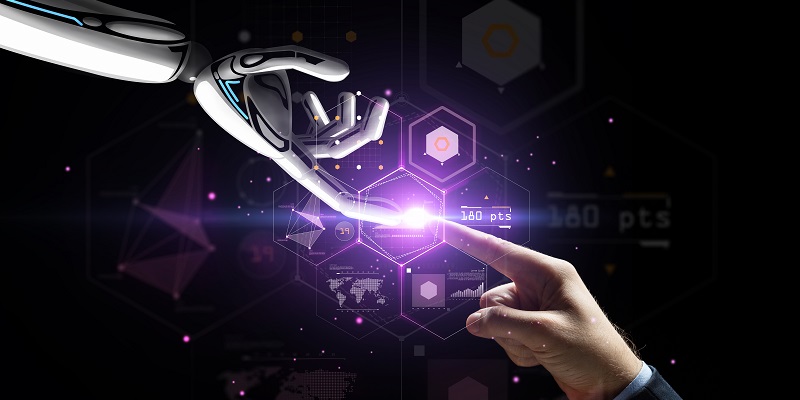Over the past few years, we have witnessed the rise of artificial intelligence in all sectors of businesses, which has been transforming the way we work. In customer support, human-AI collaboration has unquestionably revolutionized the way customer issues are resolved. By working together, humans and machines have become more efficient, effective, and productive, delivering a better overall customer experience. In this article, we will explore the impact of AI on customer support and how human-AI collaboration is becoming increasingly important in the modern business landscape.
The impact of AI on the future of work is an important topic to consider. The rise of AI in customer support has shed light on how AI technologies will change the way we work. AI systems have the capability to process large amounts of data in seconds and identify trends that would otherwise be difficult for humans to detect. As AI technologies continue to develop, it is likely that machines will be able to take on more complex tasks. However, it is important to remember that AI should not replace humans, but instead, enhance and supplement their capabilities. In customer support, AI’s role is to support human agents by providing them with the tools and capabilities necessary to resolve customer issues efficiently and effectively.
Designing Effective Human-AI Collaborations
To take full advantage of human-AI collaboration, companies must understand how the creative abilities of humans and the efficiency of machines can effectively augment each other. When it comes to customer support, it’s crucial to redesign business processes that support this partnership. This means identifying the tasks that humans are best suited to perform and the tasks where AI can add value. By doing this, companies can ensure that their customer support teams are working at maximum efficiency and are capable of providing exceptional customer experiences.
The benefits of human-AI collaboration in customer support range from faster issue resolution times to improved customer satisfaction. By combining the strengths of both humans and machines, companies can streamline their customer service processes and deliver a better experience. In the past, customers would need to wait on hold for hours or even days, and sometimes customer support teams would be hard-pressed to find a solution. With the rise of AI in customer support, machines can now identify the nature of the problem and suggest solutions for human agents to implement. This has the potential to save time and resources while providing a better customer experience.
Deeper Insights with Human-AI Collaboration in Customer Support
One of the most significant advantages of using human-AI collaborations in customer support is the ability to gain deeper insights into customer needs and behaviors. AI systems can analyze vast amounts of customer data and produce insights that would be difficult for humans to detect otherwise. By combining these insights with the skills of human agents, companies can tailor their customer support strategies to the specific needs of each customer, providing an exceptional experience.
Challenges of Human-AI Collaboration in Customer Support
While the benefits of human-AI collaboration in customer support are clear, there are several challenges that must be addressed before companies can reap the full benefits of this approach. The use of AI in customer support requires that teams have a strong understanding of how machines operate and how their outputs can be integrated into existing workflows. There is also a need for substantial investment in employee training to prepare teams for the integration of AI into their daily work.
Transitioning to Human-AI Collaboration in Customer Support
The transition to human-AI collaboration in customer support can be challenging for teams that are not adequately prepared. Organizations need to invest in employee training to provide staff with the skills needed to work with AI systems. Additionally, companies must create an environment that is flexible and receptive to change. This means employees must be open and willing to learn how AI technologies can support their work rather than replace them.
The Future of Human-AI Collaboration in Customer Support
As AI technologies continue to evolve, they will become even more integrated into customer support operations. The future of customer support will focus on leveraging the power of both humans and AI to develop more tailored, effective customer service strategies. This means that companies must embrace the integration of AI and create a culture that fosters collaboration between machines and humans. Those that adopt this approach will have a significant competitive advantage, providing their customers with exceptional experiences.
In the coming years, AI technologies will continue to have a greater impact on customer support. By harnessing the power of human-AI collaboration, companies can develop more tailored and effective customer service strategies. This requires a deep understanding of how human and machine interactions can significantly improve the customer service experience through redesigned business processes that support their partnership. By overcoming these challenges and transitioning to human-AI collaboration, companies can deliver a better customer experience and gain a competitive advantage in the marketplace.

